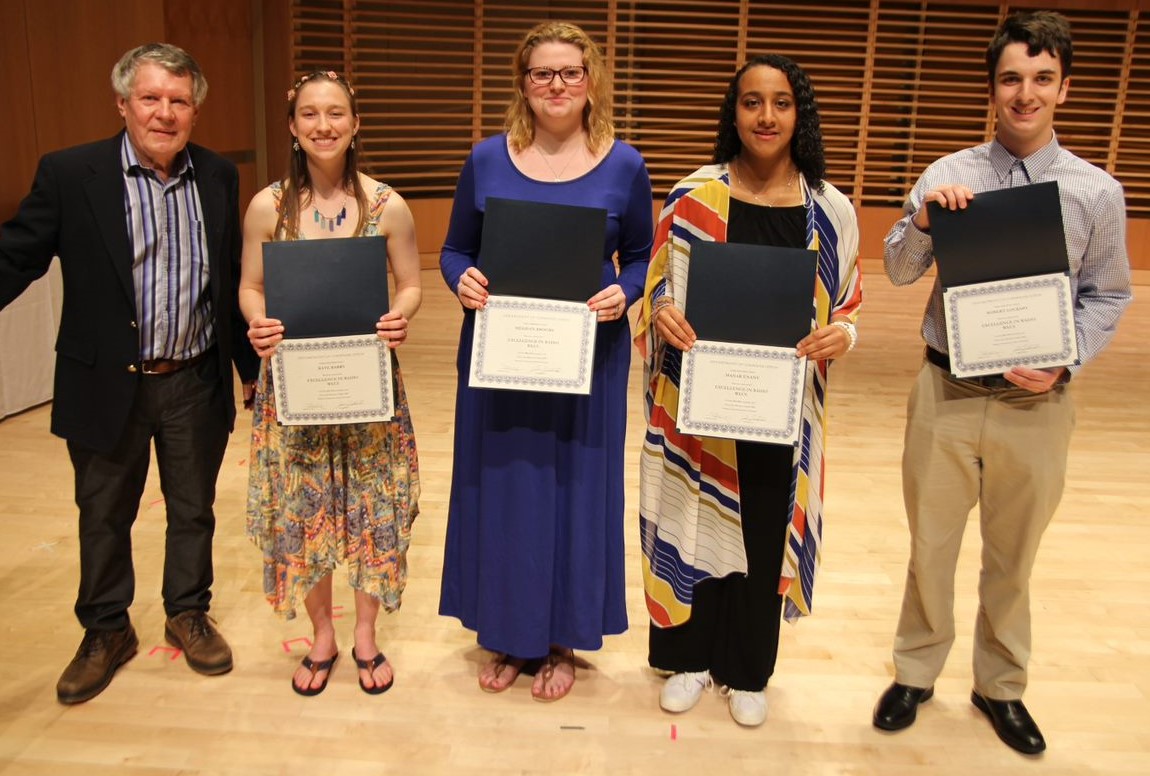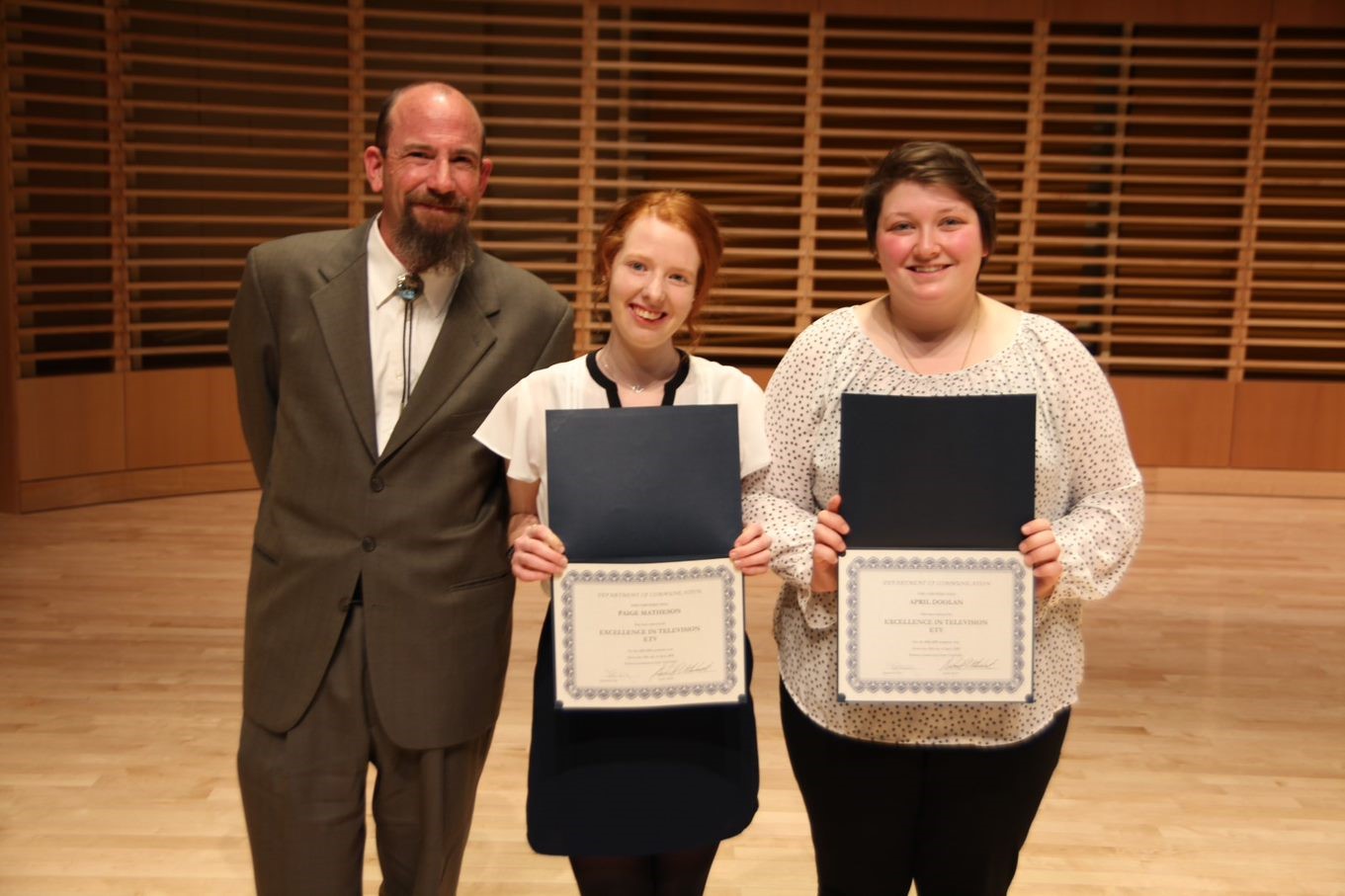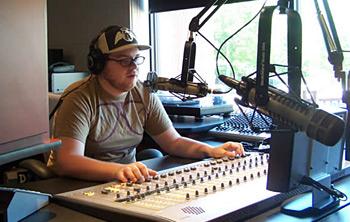- Apply
- Visit
- Request Info
- Give




The Applied Media Production concentration within the Communication major provides students with a theoretical foundation and practical experiences in preparation for careers in a variety of media production fields. Students will demonstrate professional level technical competencies in audio production and video production for industrial, commercial and non-commercial media distribution platforms. Coursework includes practical, applied instruction for traditional and developing media formats (radio, television, cable, satellite, mobile and internet).
Students must take the following: 12 credits
Students must select one additional course from the following: 3 credits

COM 120 TV Production I
An introduction to the fundamentals of studio television production. Course emphasizes multi-camera production techniques and procedures.
COM 220 TV Production II
An introduction to the fundamentals of field video production. Course emphasizes single-camera, "film style" production - from conception to finished product.
COM 241 Intro to Radio/Audio Production
This course presents an introduction to the second century of radio broadcasting. Programming, sales, promotions, engineering, the internet and digital technologies will be explored.
COM 245 Digital/Analog Audio Production
Provides a hands-on workshop for planning and producing audio programming for distribution over a wide range of media platforms. Analog and digital technologies are explored and applied, including computer and Internet-based systems.

COM 215 Media Aesthetics
Students will explore media aesthetic variable - light and color, space, time and motion, and sound - involved in the production of media messages under contextuallistic aesthetic perspectives (Dewey, Pepper and Aett1). The systematic examination of these fundamental aesthetic elements will provide students with an understanding about the importance of evaluating art within its historical and cultural contexts. Special attention will be given to film and video as art as they use the same aesthetic elements as all other art forms.
COM 320 TV Production III
Advanced television production. Course emphasizes both field and studio television production, techniques and procedures. Course is project based.
COM 380 Dramatic Video Production
A short dramatic film script will be made into a short dramatic video. Students will take on specific roles in the production process and work in tight collaboration as part of a production team. The principles of storytelling, dramatic structure, and technical aspects of dramatic digital video field production will be the basis for this class. The building blocks of narrative production including visual storytelling, casting and directing actors for the screen, art direction, sound recording, lighting, videography and postproduction will be taught and executed.
COM 420 Television Directing
An advanced course applying principles and practices learned in earlier courses. Selected programs will be written and produced including topics of community interest for distribution over the community access television channel.
COM 425 Advanced TV: News
A course designed to get students acquainted with the various aspects involved in the production of television news broadcasts. The workshop will familiarize students with the management of a newscast in studio and the techniques of Electronic News Gathering (ENG).
COM 430 Non-Linear Editing
This course emphasizes advanced postproduction techniques used for non-linear editing. Students will learn how to digitize footage, trim sequences, edit audio, add effects, and create titles. Students practice with different styles of footage such as film, news, and advertising.
COM 435 Documentary Production
Elective course for the Film Studies minor. This course will provide instruction and experience in aesthetics, storytelling, and technical aspects of digital video field production and post production in the process of making a video documentary. A basic understanding of the genre and its history will be gained by viewing and analyzing key documentary work. Students will produce broadcast quality documentaries to be aired on the ECTV Channel.